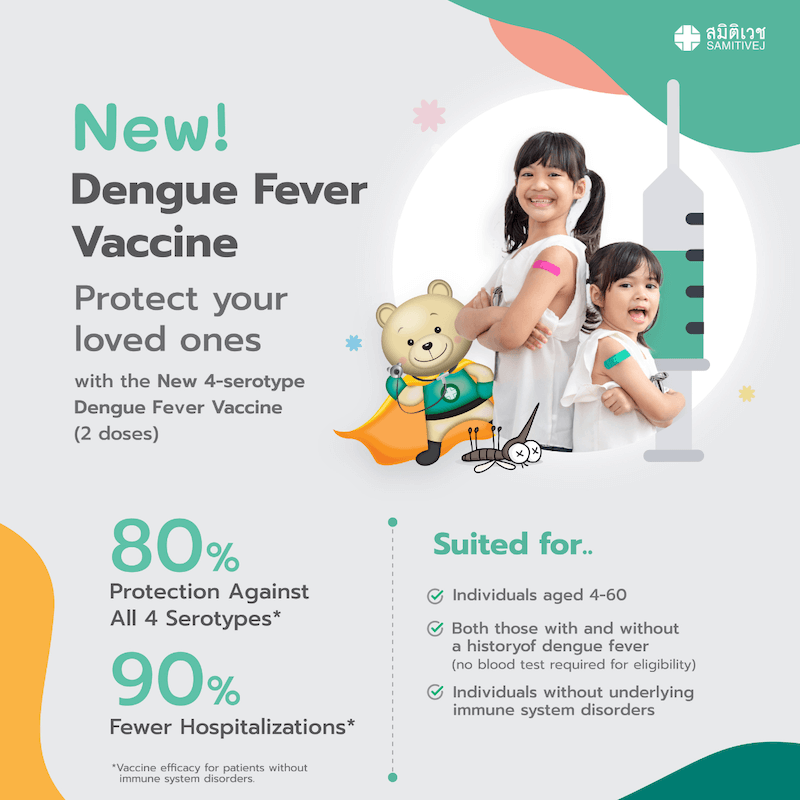Thailand has seen a growing number of cases of dengue hemorrhagic fever in recent years, with children aged 0 to 14 years old most at risk. The disease is most prevalent during the rainy season in the months of May to August, and it is primarily transmitted by the Aedes mosquito, which can be recognised by white markings on its legs.
As the dengue virus in Thailand causes haemorrhaging, the disease is commonly known as dengue hemorrhagic fever (DHF).
Symptoms: 5-8 days after catching the virus, the patient will suddenly develop acute febrile illness (fever) lasting 2 to 7 days, progressing to severity during defervescence, and ending in a convalescent phase.
3 Stages of DHF:
- Fever: The patient will suddenly develop a raging fever with a body temperature often over 38.5 Celsius. In many cases, especially in children, the patient will also have convulsions. Although the patient will not have a running nose or cough, rashes may develop and there may be bleeding from the skin.
- The Critical Period / Shock: 1 out of every 3 cases of DHF experience blood circulatory problems, which coincides with a sudden lowering of the fever. In these cases, the patient will quickly go into a shock-like state. Treatment will be required within 12 to 24 hours; otherwise, the patient may die from shock and/or bleeding.
- Recovery: Patients who do not reach the shock-like state will make a speedy recovery. However, patients who go into the shock-like state can recover within 2 to 3 days as long as they are treated in a timely and proper manner.
Take action: Visit your doctor immediately if you or a family member suddenly becomes exhausted, vomits repeatedly, vomits blood, passes black stool, suffers from severe stomachache near the cartilage or lower-right of the abdomen, sweats profusely, and experiences a slow pulse rate.
Treatment: There is currently no anti-dengue fever vaccine available. The only approach is to treat the symptoms and take very good care of the patient during the critical stage until the fever subsides.
By Sanay Chearskul, Clinic Professor Emeritus, M.D., Specialist in Pediatric Infectious Diseases at Samitivej International Children’s Hospital
Editor’s note: This article is sponsored content from Samitivej International Children’s Hospital, and it is reprinted here with permission of the hospital.














